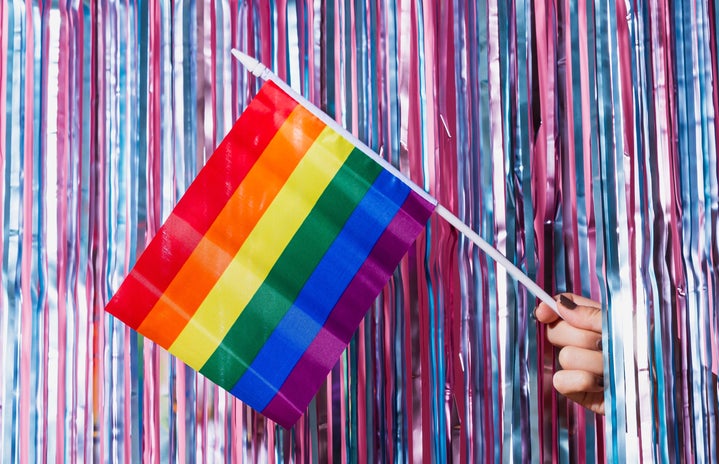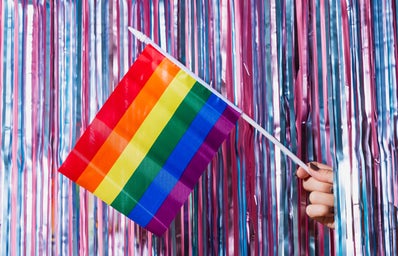My first ever crush was my neighbor, who happened to be a girl, so the title should not come as a surprise. I’m queer, and very proud of it, but figuring out my identity was a bumpy road, to say the least; not because I was in denial, but because people around me were. I have always been very secure in myself and my identity, I did not even believe I had to come out, I thought everyone liked everyone and gender didn’t matter, poor naïve 9-year-old me. Imagine my face when I proudly tell my mother I liked this girl and she said, “no you don’t.” … What do you mean? I started realizing that, for some reason, some people in my family didn’t like it when I mentioned my crush. I noticed my twin sister didn’t have the same feelings as me, she likes boys and only boys. This topic of conversation now seemed taboo.
The second crush I had during middle school was my friend. Also a girl, we were close, and she coincidentally lived three streets away from me. We talked and played every day; she was my best friend. Once again, I told one other friend about my crush, who thought it was weird. My third crush was a boy, finally; or not really. I didn’t think it was a big deal, but for the first time everyone wanted to know and talk about my crush and I started connecting the dots… So that’s how the world works?
High school was a lot better, I found people like me, people that just liked people’s hearts. I wasn’t alone for the first time in my life. I had people to turn to and be 100% unapologetically myself. I learned so much more too. Just like sexuality is a spectrum, so is gender. I’m a non-binary, gray-sexual, pan-romantic, beautiful person. Sorry for all the terminologies, I understand it might be a lot, which is also why I don’t need labels anymore. Personally, I think we should all just be. This was nice for a while but something else felt wrong. When will this stop? I have come to terms with the fact that there’s people who don’t believe in love but why do those people have to include my family?
Being comfortable in my body and mind was empowering. This is the stage my family would call “rebellious,” or as my mom said “disgusting,” but really, I was starting to live for myself. I wanted my outside to feel as amazing as my inside and that started with shaving my head and having my first openly queer relationship. It’s sad to say I kind of expected the homophobic remarks, since it’s incredibly common in my culture, I just hoped I was the exception. Well, I wasn’t and most of the older people in my family said I was “a disgrace” and that I was going to hell. Religion is also important in my culture, which is why I brought it up, not because I have experienced this resistance from everyone that is religious. I lost half my family the day I came out. Some people will say that family is family, and I will have to forgive and forget one day but, why do I? Why is it me that has to forget? Why don’t they grow and accept? I thought the harder part was me accepting myself, turns out it was finding a support system in my own home.
I wasn’t the happiest after that but, like any good queer book, I found my family, people who actually had my back since before I even told them I needed them. Turns out, after you cut people off from your life, that doesn’t provide you with any positivity, but it does get better! Well, you know as “better” as it can get. I still had several heartbreaks, cheating, toxic partners, pregnancy scares, etc. All necessary experiences, none that I regret.
Years later, I’m sitting on my living room couch in my new house with my significant other next to me. I work in an office, already finished my bachelor’s but am working on my master’s degree. I’m writing about my queer journey and I’m happy. The good, the bad, and the okay, this is all I can give of my story. I’m trying to stay as truthful as I allow myself to be, because I know someone else might be at the beginning of their journey and reading this. I assure you it will not be easy, but it will be worth it.
If you are now curious about Puerto Rican queer culture, I suggest reading Queer Ricans by Lawrence (Larry) La Fountain-Stokes. Impactful, educational, and insightful, Queer Ricans lend their perspectives to discussions in the diaspora’s subjects of queer and Latino studies and the tremendous layers and complexity of how culture is “negotiated” within the ideologies of colonialism, migration, sexuality, racism, gender, and historical context.


